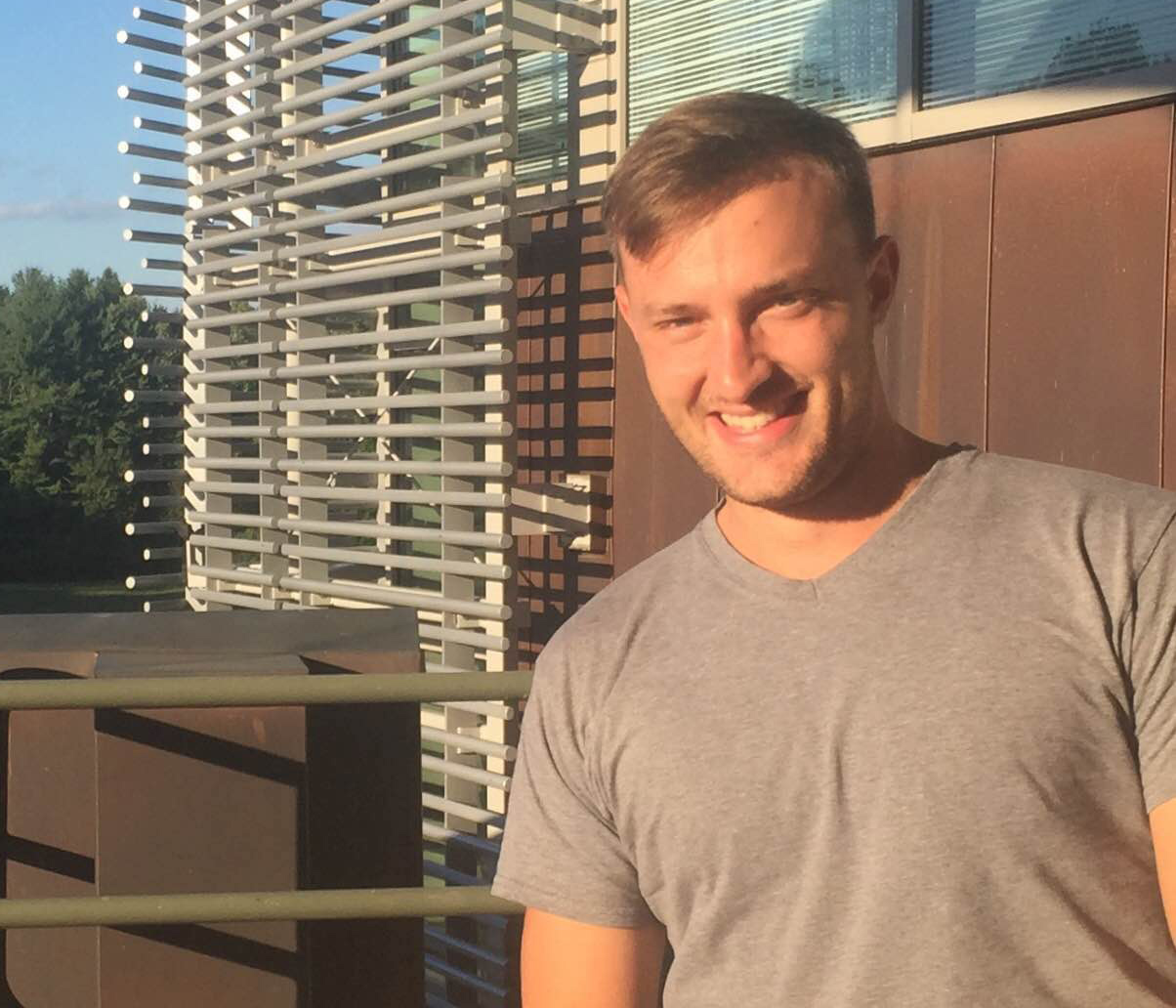
Within minutes of meeting Alex Tarabochia ‘19, don’t be surprised if you find yourself revealing intimate details of your life. He has that affect on people. “I’m always being told how comfortable people feel telling me everything about themselves within five minutes of meeting me,” he says.
The first-year Geisel student, who is open and cheerful, says he doesn’t feel burdened by what people tell him. He views their immediate comfort and trust as a gift that enriches his life and credits their ease to his innate curiosity and empathy.
Given his warm personality, it is easy to imagine Tarabochia has led a charmed life, but that’s not the case. “As a child, I had a gut feeling there was a lot wrong both in the community and in my family,” he says. “There was, and as I got older, I realized I wanted to soften that for everyone, not only for my own family, but also for the community. I decided medicine was the best way to do that.”
Part of an extended family of intergenerational commercial fishermen, life in the small fishing town on the banks of the Columbia River in rural southwestern Washington was chaotic—disputes over fishing grounds, police harassment, and family conflicts contributed to Tarabochia’s feelings of unease. He and his siblings learned early to be self-sufficient and by the time he was 14 years old, he and his twin brother co-captained their own commercial fishing vessel. During fishing season the demands of his family’s lifestyle resulted in numerous missed school days.
While out working on the boat, he took advantage of minimal free time to keep up with his schoolwork and to wrestle with questions about the town’s high level of hostility toward his family and its unwillingness to accept those who were different.
This experience spurred Tarabochia’s interest in the dynamics of creating community harmony and the effort it takes to forge strong ties. He viewed his acceptance to Columbia University as the first step in living and learning in a place where people co-existed without hostility.
Our lives are intertwined and we should feel safe to celebrate our differences—this is how it’s supposed to be. We can all live together."
- Alex Tarabochia ‘19
As a first generation college student, he knew the transition would be academically challenging. And it was, but drawing on the survival skills he learned growing up he persevered and his life improved. Tarabochia says if he had stopped short and given up, he would never have known what he was capable of, “to keep going in the face of hardship felt really good.”
He describes New York City’s diverse population as beautiful, and Columbia was everything he thought it would be. “When you are a little fish, you are always forced to reevaluate how you live, to confront any biases you may have, which results in a much better life,” he says. “Our lives are intertwined and we should feel safe to celebrate our differences—this is how it’s supposed to be. We can all live together.”
After graduating, Tarabochia postponed medical school and spent several years in Florida working as an AmeriCorps volunteer in the Magnolia Project, which sought to reduce the high infant mortality rate in Jacksonville, and as a researcher in the Center of Neurogenetics at the University of Florida’s medical school.
Historically oppressed and lacking resources, pregnant women in Jacksonville were at risk. “High levels of domestic violence, STDs, and poor nutrition along with drinking and drugs, resulted in increased infant mortality rates,” he notes. “Many of these embedded cultural attitudes were very difficult to overcome.”
Tarabochia’s role in the project was to provide support to the women’s partners. Given the array of deeply ingrained behaviors, he wasn’t sure how to begin helping them confront their problems. Determined to grasp what drove their decisions, he dug in.
“Basically it came down to helping partners without jobs find a job, and helping people without housing to find housing—many weren’t aware that the way they were living had to stop,” he says. “Some were receptive to help with figuring out how to stabilize their lives and making it better for their kids.”
In Tarabochia’s experience it takes something radical to happen, such as eviction or homelessness, in order to break the cycle and become empowered—to realize there are options and support available to help make changes.
“Working at the women’s clinic was fascinating,” he says. “You see the front line of everything in women’s health and your patients share intimate details of their daily lives with you. I really value that.”
As a future doctor, awareness of a patient’s personal situation is of critical importance to Tarabochia. It may seem to be a minor bit of information, but it’s not. Understanding what they are going through makes it easier to provide good care.
“I’m not shocked when somebody tells me something a little bit off the wall—for me the shock factor has long worn away,” he says. “Or, if a patient mentions they are struggling with bills, the electricity has been cut off, or they don’t have transportation, I know what that means and how it affects their health,” he adds.
All of these experiences have influenced the kind of doctor Tarabochia wants to be and he says Geisel will help him achieve that, “I feel like I’m in the right place everyday that I’m here.”